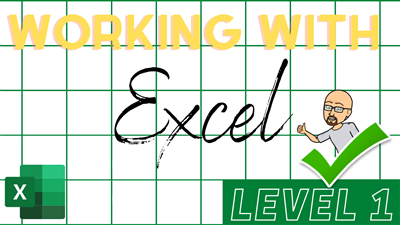
Best SystemVerilog Courses
SystemVerilog Courses
SystemVerilog is a powerful hardware description and verification language used in the design and verification of digital systems, particularly in the semiconductor and electronics industries. Our SystemVerilog courses are designed to provide you with a comprehensive understanding of both the design and verification aspects of SystemVerilog. Whether you are a beginner or an experienced professional, our courses offer in-depth training in SystemVerilog programming and applications.
Course Overview
Our SystemVerilog courses cover a wide range of topics, ensuring you gain a thorough understanding of both fundamental and advanced concepts. Key areas of focus include:
Introduction to SystemVerilog
- Topics Covered: Overview of SystemVerilog, its history, and its applications in digital design and verification.
- Objective: Gain a foundational understanding of SystemVerilog and its significance in hardware design and verification.
SystemVerilog Language Basics
- Topics Covered: Data types, operators, procedural blocks, and language constructs.
- Objective: Learn the basics of SystemVerilog syntax and semantics to write simple design and testbench code.
RTL Design with SystemVerilog
- Topics Covered: Register Transfer Level (RTL) design, combinational and sequential logic, and synthesis considerations.
- Objective: Understand how to use SystemVerilog for designing digital systems at the RTL level.
Testbenches and Verification
- Topics Covered: Testbench components, verification methodologies, and constrained-random verification.
- Objective: Learn how to create effective testbenches for verifying digital designs using SystemVerilog.
Advanced Verification Techniques
- Topics Covered: Object-oriented programming (OOP) in SystemVerilog, functional coverage, assertions, and the Universal Verification Methodology (UVM).
- Objective: Develop advanced verification skills to handle complex verification tasks and ensure thorough validation of designs.
Interfaces and Modularity
- Topics Covered: Creating modular designs using interfaces, packages, and configurations.
- Objective: Understand how to structure and organize SystemVerilog code for reusability and maintainability.
Assertions and Coverage
- Topics Covered: SystemVerilog assertions (SVA), functional coverage, and coverage-driven verification.
- Objective: Learn how to use assertions and coverage metrics to enhance the verification process and ensure design correctness.
Clocking and Timing
- Topics Covered: Clocking blocks, timing constraints, and synchronous design practices.
- Objective: Understand how to manage clocking and timing in SystemVerilog to create robust and reliable digital designs.
Simulation and Debugging
- Topics Covered: Simulation tools, debugging techniques, and waveform analysis.
- Objective: Gain proficiency in using simulation tools to verify and debug SystemVerilog designs and testbenches.
FPGA and ASIC Design Flow
- Topics Covered: Overview of FPGA and ASIC design flows, synthesis, and place-and-route processes.
- Objective: Learn how SystemVerilog fits into the overall FPGA and ASIC design processes and how to prepare designs for implementation.
Why Choose Our SystemVerilog Courses?
- Comprehensive Curriculum: Our courses cover all essential aspects of SystemVerilog, providing a thorough education in digital design and verification.
- Expert Instructors: Learn from experienced professionals with deep knowledge of SystemVerilog and practical experience in the semiconductor industry.
- Hands-On Learning: Engage in practical exercises, labs, and projects to apply your SystemVerilog knowledge and develop hands-on skills.
- Flexible Learning Options: Access our courses online or in-person to fit your schedule and learning preferences.
- Certification Preparation: Benefit from exam preparation materials and guidance to help you achieve certifications in digital design and verification.
- Career Advancement: Gaining expertise in SystemVerilog enhances your career prospects in hardware design, verification, and semiconductor industries.
Conclusion
Our SystemVerilog courses are designed to provide you with the skills and knowledge necessary to excel in the design and verification of digital systems. Whether you're new to SystemVerilog or looking to advance your expertise, our courses offer comprehensive training to help you become a proficient digital designer and verification engineer.
















